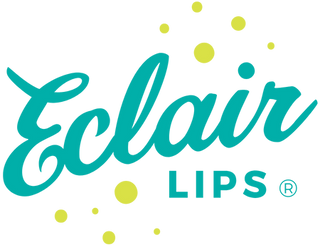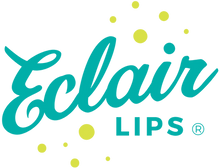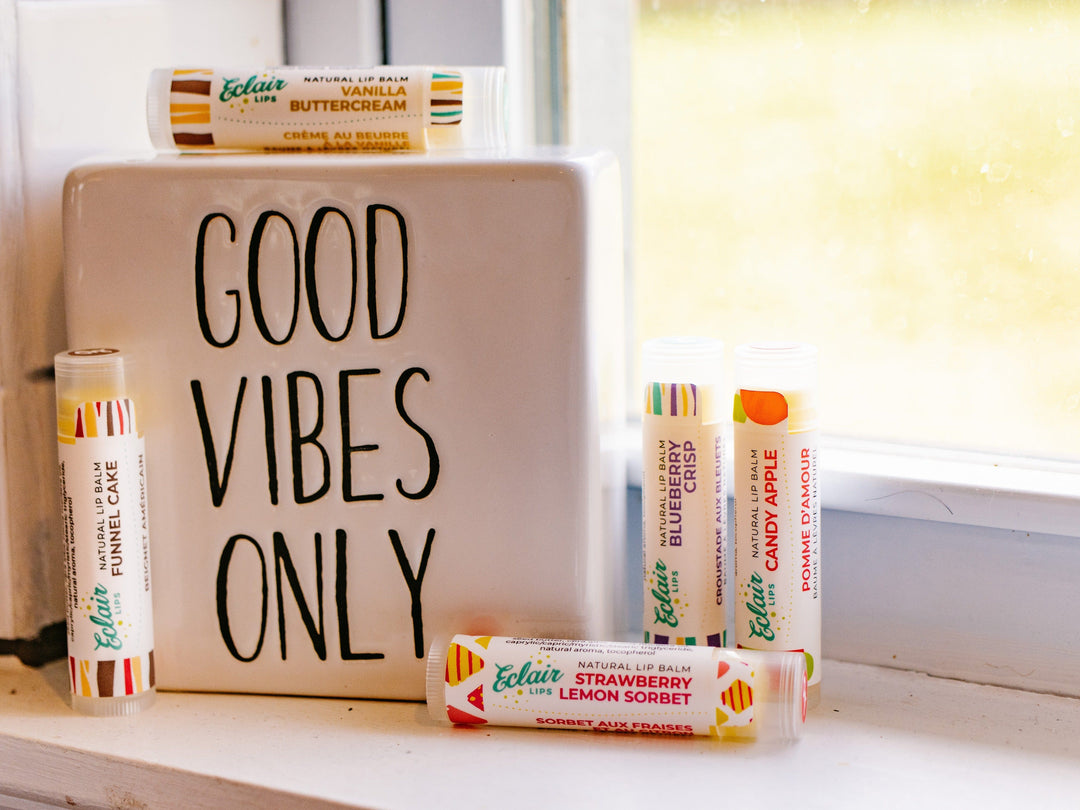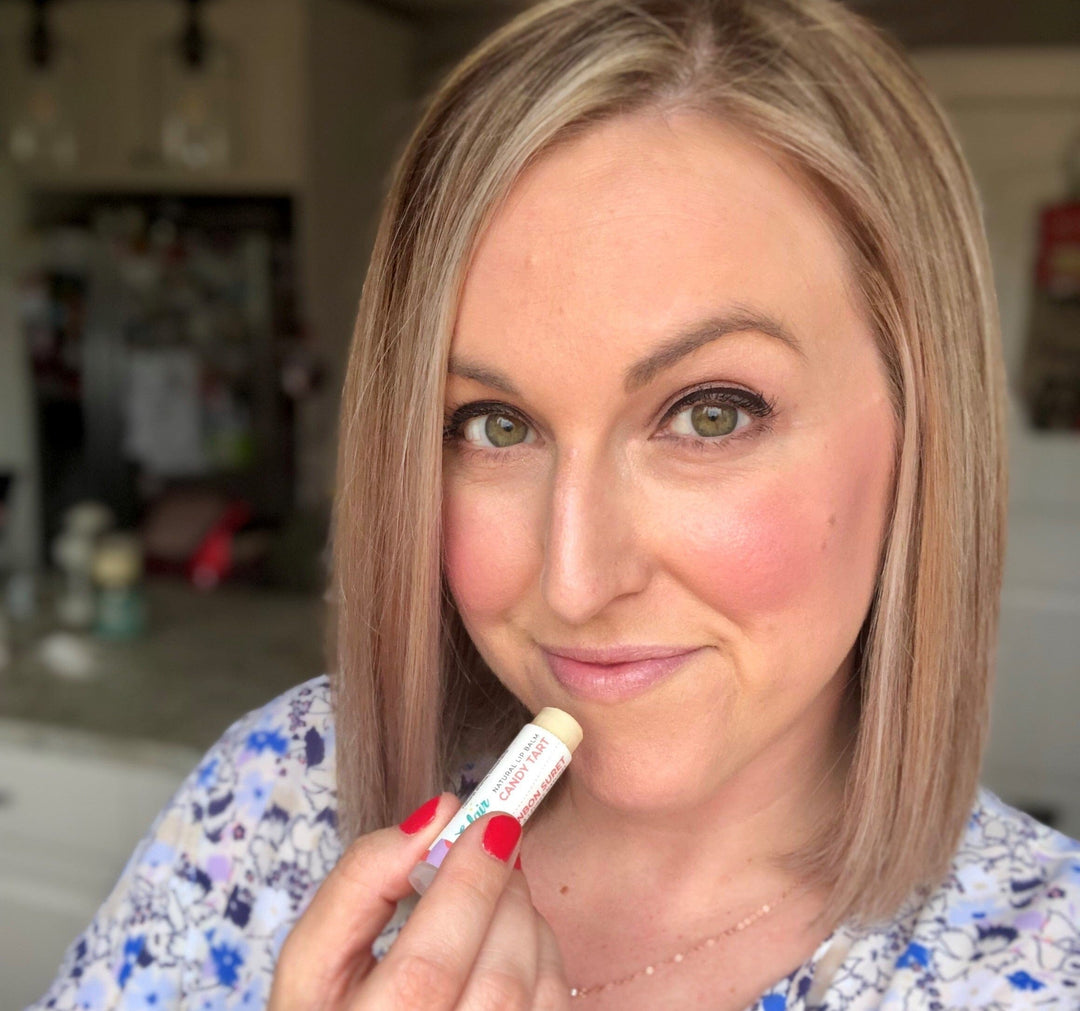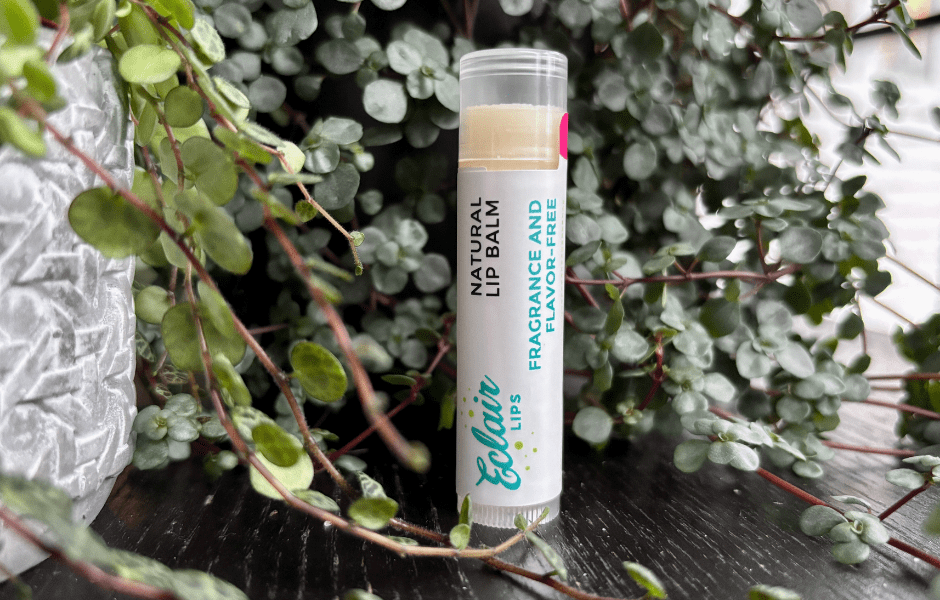Does Lip Balm Make Your Lips More Chapped?
The Truth About Lip Balm and Chapped Lips
If you've ever felt like you're using more and more lip balm but your lips never actually get better, you're not imagining things. Does lip balm make your lips more chapped? The short answer is that your lip balm itself isn't making you dependent, but certain ingredients in some formulas can create a cycle where your lips feel dry again quickly. Understanding what's actually happening helps you break free from constant reapplication and find a formula that truly works.

Quick Takeaway
- Quality lip balms don't cause addiction or dependency
- Some ingredients (menthol, camphor, phenol) can irritate and dry lips
- Environmental factors and habits often cause ongoing dryness
- Switching to gentler ingredients usually solves the problem
Contents
The "Lip Balm Addiction" Myth Explained
The idea that lip balm creates addiction has been circulating for years, but dermatological research is clear that this isn't how lip balm works. Your lips don't have oil glands that can "shut off" when you use balm. They always need external moisture, which is why lip balm exists in the first place. There's no ingredient in lip balm that causes physiological dependence or trains your body to produce less natural moisture.
What people mistake for addiction is usually one of two things: either the formula contains ingredients that irritate your lips and create a reapplication cycle, or environmental factors keep drying out your lips faster than the balm can protect them. The feeling of needing constant reapplication is real, but it's not because you're addicted. It's because something else is going on.
When Is My Lip Balm Causing Chapped Lips?
So when is your lip balm actually the problem? If you're using a formula with certain irritating ingredients, it can create a frustrating cycle. Ingredients like menthol, camphor, and phenol give that cooling or tingling sensation that many people associate with lip care products. That sensation feels like the balm is "working," but what's actually happening is irritation. These ingredients can dry out your lips over time, prompting you to apply more balm, which then causes more dryness.
Salicylic acid is another culprit in some medicated balms. It's meant to exfoliate flaky skin, but it's often too harsh for the delicate tissue of your lips. Instead of healing, it can strip away natural oils and cause more peeling.
Flavour and fragrance additives can also trigger allergic reactions in some people, leading to redness, scaling, and persistent dryness around the mouth. Even lanolin, which is an effective moisturizer for many folks, causes contact allergies in certain individuals and makes their chapping worse.
If your current balm has any of these ingredients and you find yourself applying it every ten minutes, that's a signal to switch formulas. Try something simpler with fewer additives and see if the constant need to reapply diminishes.
Why Your Lips Feel Dry Again So Quickly
Even if your lip balm has perfectly good ingredients, environmental factors can make it seem like nothing works. Cold, dry winter air strips moisture from your lips relentlessly. You step outside into freezing wind, then come back inside to dry heated air that further dehydrates your skin. This constant back-and-forth creates chronic dryness that even the best balm struggles to keep up with.
Lip-licking is another major contributor, and it's a habit many people don't even realize they have. When you lick your lips, saliva briefly wets them, but as it evaporates it actually leaves your lips drier than before. Saliva contains enzymes that break down the moisture barrier, making the problem worse. If you're someone who licks your lips frequently (especially in cold weather when they feel tight), you're fighting against your balm's efforts to protect them.
Mouth-breathing, particularly while sleeping, dries out lips overnight. If you wake up with parched lips every morning, this might be what's happening. Using a humidifier in your bedroom can help counteract this, as can applying a thick protective balm before bed to create a stronger barrier while you sleep.
The Real Culprits Behind Persistent Dryness
Sometimes persistent lip dryness has nothing to do with your balm and everything to do with other products you're using. Toothpaste containing sodium lauryl sulfate can irritate the skin around your mouth and cause chapping. If your lips are consistently dry and cracked at the corners, your toothpaste might be part of the problem. Switching to a gentler formula sometimes makes a surprising difference.
Certain medications also cause chronic dry lips as a side effect. Isotretinoin (commonly known as Accutane) for acne treatment causes cracking and dryness in almost everyone who takes it because it reduces oil gland activity throughout your body. If you're on medication and experiencing new or worsening lip dryness, that's worth discussing with your doctor.
Nutritional deficiencies, particularly in B vitamins or iron, can manifest as persistent chapped lips. If you've tried multiple lip balms, avoided irritating ingredients, and your lips still won't heal, it might be time to look beyond lip care products. Underlying skin conditions like eczema or perioral dermatitis can also affect your lips and require medical attention rather than just more balm.

How to Tell If It's Your Balm or Something Else
Pay attention to what happens when you apply your lip balm. If you feel a tingling, burning, or cooling sensation, that's irritation, not healing. A good lip balm should feel neutral or soothing, never uncomfortable. If your lips feel worse an hour after applying balm, or if you notice increased flaking and peeling, the formula isn't working for you.
Track your reapplication frequency honestly. Are you reaching for your balm every five to ten minutes out of habit or anxiety, or do your lips genuinely feel dry and uncomfortable? If it's habit-driven and your lips actually feel fine, you might be dealing with a psychological comfort ritual rather than a real moisture problem. That's not harmful, but it's worth recognizing so you're not worried about fake "addiction."
Try the elimination test: switch to the simplest possible lip balm for two weeks. Look for something with minimal ingredients—ideally just beeswax, oils, and butters with no added fragrance, flavour, menthol, or camphor. A basic formula removes variables and lets you see if your lips improve without the potentially irritating extras. If your lips get better on the simple formula, you know ingredients were the issue. If they don't improve, environmental or health factors are more likely the cause.
Ingredients to Avoid When Your Lips Are Already Dry
When your lips are chapped, cracked, or irritated, you want to be especially careful about what you apply. Skip anything containing menthol, camphor, eucalyptus, peppermint oil, or phenol. These create that "medicated" sensation but they're drying rather than healing. Avoid balms with strong fragrances or citrus oils, which are common allergens that can inflame already sensitive lips.
Watch out for products labeled as "exfoliating" or containing salicylic acid when your lips are damaged. Exfoliation has its place for removing dead skin, but not when your lips are actively cracked or sore. That's like scrubbing a wound—it makes things worse, not better. Save exfoliating products for when your lips are healthy and you just want to smooth away some flakiness.
Be cautious with lanolin if you have sensitive skin. While it's an excellent moisturizer for many people, it's also a relatively common allergen. If you've been using a lanolin-based balm and your lips aren't improving, trying a lanolin-free formula might help.
What Actually Works for Healing Chapped Lips
The most effective approach to healing severely chapped lips is simplicity. Look for balms with gentle, moisturizing ingredients like beeswax (which creates a protective barrier), cocoa butter (known for deep hydration), and coconut oil (which helps soften and condition). These ingredients work together to lock in moisture without causing irritation.
Petroleum jelly is another reliable option that dermatological research consistently supports. It's bland, non-irritating, and creates an occlusive barrier that prevents moisture loss. Some people don't love the texture or prefer more natural options, but there's no denying it works effectively for healing damaged lips.
Apply your lip balm consistently throughout the day, especially before going outside in harsh weather. Layer it on thick before bed so it can work overnight while you're not eating, drinking, or talking. If you're in an extremely dry climate or dealing with winter conditions, reapplying every couple hours isn't excessive—it's appropriate protection given what your lips are up against.
Breaking the Reapplication Cycle
If you've been stuck in a pattern of applying lip balm constantly but never feeling relief, switching your formula is usually the first step. Choose something with simple ingredients and no added fragrance, flavour, or medicated components. Give it at least a week to see if your reapplication frequency decreases.
Address your environment if possible. Use a humidifier in rooms where you spend significant time, especially your bedroom. This adds moisture to the air and reduces how quickly your lips dry out. It helps your skin overall, not just your lips, so it's worth the investment if you live in a dry climate or deal with forced-air heating.
Break the lip-licking habit if you have one. This takes conscious effort because it's often unconscious behavior. Every time you catch yourself licking your lips, apply balm instead. Eventually, reaching for your balm becomes the new automatic response, and since the balm actually helps (unlike licking), your lips improve.
If you're someone who reaches for lip balm out of stress or anxiety rather than actual dryness, that's okay—it's not harmful. But recognizing the difference helps you feel less worried about dependence. Some people use lip balm application as a soothing ritual similar to how others might fidget with a pen or adjust their hair. That's a behavioral habit, not a chemical addiction, and there's nothing wrong with having small comfort behaviors.

Is SPF Lip Balm Necessary When Your Lips Are Already Dry?
Sun damage contributes to chronic lip dryness more than many people realize. UV exposure breaks down the thin skin barrier on your lips and can cause long-term damage that makes them more prone to chapping. If you spend time outdoors regularly—whether that's commuting, working outside, or recreational activities—SPF protection matters.
Is SPF lip balm necessary for everyone? Not absolutely essential if you're mostly indoors, but it's genuinely helpful if you have regular sun exposure. The challenge is finding SPF formulas that don't taste terrible or feel thick and chalky. Many people avoid SPF lip balms specifically because of the unpleasant taste and texture, which means they're not getting protection they actually need.
If you're looking for SPF lip balm that doesn't taste bad, expect to try a few options before finding one you like. The chemical sunscreen ingredients required to achieve SPF ratings do affect taste and texture to some degree. Some brands manage this better than others, so it's worth reading reviews and being willing to experiment if sun protection is important for your situation.
When to See a Doctor About Persistent Lip Problems
Most lip dryness resolves with the right balm and some attention to environmental factors and habits. But if you've switched to gentle ingredients, addressed lip-licking and environmental issues, and your lips still won't heal after several weeks, it's time to see a healthcare provider. Persistent cracking, especially at the corners of your mouth, can indicate an underlying condition that needs medical treatment.
Watch for signs that suggest something beyond simple dryness: lips that bleed frequently, sores that don't heal, unusual discoloration, or significant swelling. These symptoms warrant professional evaluation. Some skin conditions that affect the lips, like angular cheilitis (cracking at the corners) or eczema affecting the lip area, need specific treatment beyond standard lip balm.
If you're taking medication and developed new lip problems after starting it, mention this to your prescriber. They might be able to adjust dosage, suggest additional treatments, or confirm that the side effect is expected and manageable with the right supportive care.
Comparison Table: Helpful vs. Harmful Lip Balm Ingredients
| Ingredient Type | Examples | Effect on Lips | When to Use |
|---|---|---|---|
| Helpful Moisturizers | Beeswax, cocoa butter, coconut oil, shea butter | Creates protective barrier, locks in moisture, no irritation | Daily use, especially in harsh weather |
| Safe Occlusives | Petroleum jelly, plant waxes | Forms breathable seal to prevent water loss | Overnight treatment, severe dryness |
| Irritating Ingredients | Menthol, camphor, phenol | Creates cooling sensation but dries lips over time | Avoid when lips are chapped |
| Potential Allergens | Lanolin, fragrances, citrus oils, cinnamon | Can cause allergic reactions in sensitive individuals | Avoid if you have sensitivities |
| Harsh Exfoliants | Salicylic acid, strong AHAs | Strips natural oils, can worsen cracking | Never use on damaged lips |
| SPF Ingredients | Chemical sunscreens (avobenzone, etc.) | Protects against sun damage but may affect taste | Outdoor activities, high UV exposure |
Does Switching Between Different Balms Cause Problems?
You might wonder if using different lip balm brands or formulas causes issues. The good news is that switching between products doesn't create problems as long as each individual product has ingredients your lips tolerate well. Many people keep different balms for different purposes—something light for daytime, a thicker option like vanilla buttercream for nighttime, and maybe a flavoured one for variety.
The only time switching becomes relevant is if you're trying to figure out which specific product is causing irritation. In that case, you'd want to use one consistent formula for a couple weeks to truly test whether it works for you. But under normal circumstances, using multiple different balms throughout your day or week is perfectly fine.
Some folks wonder about whether certain combinations work better. For example, can you apply one balm and then layer a different one over it? Generally yes, though there's limited benefit to layering multiple balms at once. If you want light moisture with sun protection, a single product that does both makes more sense than stacking products. But if you have a favorite scent and a different favorite texture, combining them won't cause harm—it's just probably unnecessary.
Natural vs. Synthetic: Does It Matter?
The natural versus synthetic ingredient debate comes up frequently in lip care conversations. In practice, what matters most is whether specific ingredients work well for your individual lips, not whether they're natural or synthetic. Some people find natural formulas with beeswax and plant-based ingredients work beautifully, while others get excellent results from petroleum jelly-based products.
Natural lip balms often contain ingredients like beeswax, cocoa butter, and coconut oil. These create different textures than petroleum-based formulas—often slightly firmer and with more of a skin-like feel. Many people find these formulas more comfortable and effective for serious dryness. Brands that focus on natural ingredients often avoid the irritating additives that cause problems, simply because those additives don't align with a natural formulation philosophy.
Synthetic formulas, particularly those with petroleum jelly as the base, have their own advantages. They're predictable, extensively tested, stable in various conditions, and reliably effective. There's nothing inherently wrong with synthetic ingredients—they're just different. If petroleum jelly works great for your lips, there's no reason to switch to natural alternatives based solely on philosophy.
The key is matching the formulation approach to your needs and preferences. If you have specific ingredient sensitivities, natural formulas might offer more transparency and fewer potential allergens. If you want the most tested and validated approach backed by dermatological research, petroleum-based products have that evidence. Both can work; neither is universally "better."
The Psychology of Lip Balm Use
Understanding the psychological component of lip balm use can be surprisingly helpful. For some people, applying lip balm becomes a self-soothing behavior similar to other small comfort habits. You might reach for your balm when you're anxious, bored, or just need something to do with your hands. This isn't problematic, and it doesn't mean you're "addicted" in any medical sense.
Recognizing this pattern helps you separate genuine lip dryness from habitual use. If your lips feel comfortable but you want to apply balm anyway, that's fine—it's not harmful. But if you've been worrying that you "can't stop" using lip balm, understanding that it's a behavioral habit rather than physiological dependence can reduce that worry. You're not damaging your lips by having a comfort habit.
Some people find that switching to a pleasant-tasting or beautifully scented balm like maraschino cherry actually helps them enjoy the ritual aspect of application. If you're going to apply balm frequently anyway (whether from habit or genuine need), you might as well use something that makes the experience enjoyable. This isn't silly or frivolous—enjoying your self-care products means you're more likely to use them consistently, which keeps your lips in better condition overall.

Tips for Healthy Lips Long-Term
Maintaining comfortable lips long-term involves more than just having the right balm, though that's certainly important. Staying well-hydrated by drinking enough water throughout the day supports your skin's moisture levels from the inside. Your lips are skin too, and systemic hydration matters even though topical products are also necessary.
Be gentle with your lips. Don't bite or pick at flaky skin, even though it's tempting. Picking damages the delicate skin barrier and can introduce bacteria that lead to infection or prolonged healing time. If you have flakes you want to remove, use a gentle exfoliating balm when your lips are healthy, not when they're already damaged.
Consider your overall skincare routine and how it affects your mouth area. Face washes with harsh surfactants can irritate the skin around your lips. Acne treatments applied near your mouth can cause dryness that extends to your lips. Being mindful of how other products interact with your lip area helps you maintain better overall lip health.
Finding What Works for You
The frustrating truth is that what works perfectly for one person might not work for another. Your friend's holy-grail lip balm might irritate your lips, and vice versa. This isn't anyone's fault—it's just how individual skin sensitivity and environmental factors combine differently for each person.
Give new products a fair chance (at least a week of consistent use) but don't stick with something that clearly isn't working. If a balm consistently makes your lips feel worse or creates that constant reapplication cycle, try something different. With the wide variety of formulas available today—from simple petroleum jelly to natural butter-based balms like our Discovery Bundle to specialized treatments—there's almost certainly something that will work well for your specific needs.
Pay attention to patterns in what helps and what doesn't. Maybe you notice that fragranced balms irritate you but unflavoured ones work great. Perhaps beeswax-heavy formulas feel too waxy for daytime but perfect at night. These observations help you make better choices going forward and save money on products that won't work for you.
Frequently Asked Questions
Can lip balm actually make my lips drier?
Some lip balms with irritating ingredients like menthol or camphor can create a cycle where your lips feel dry again quickly, but quality balms with gentle ingredients won't make your lips drier. If your current balm seems to make things worse, the formula likely contains something your lips don't tolerate well.
How do I know if I'm "addicted" to lip balm?
You're not addicted in a medical sense. Your lips have no oil glands to become dependent on external moisture—they always needed it. What feels like addiction is usually either a formula with irritating ingredients or environmental factors causing genuine dryness. If you're worried about psychological habit, that's not harmful, just a comfort behavior.
Is it bad to use lip balm multiple times a day?
Not at all. Using lip balm frequently throughout the day is appropriate and healthy, especially in harsh weather or dry environments. The question is whether your lips need the reapplication (in which case it's beneficial) or whether something about your current formula is causing the constant need.
Should I switch lip balms if mine isn't working?
Yes, if you've been using a balm consistently for two weeks and your lips aren't improving—or if you're reapplying every few minutes—try a different formula. Look for something simpler with fewer potential irritants.
Do expensive lip balms work better than cheap ones?
Not necessarily. Some affordable petroleum jelly-based products work excellently, while some premium natural balms might not suit your particular needs. Price reflects ingredients, production methods, and business size more than effectiveness. Focus on finding ingredients that work for your lips, regardless of price point.
Can I use the same lip balm in summer and winter?
You can, though many people find they need thicker, more protective formulas in harsh winter conditions and prefer lighter options in summer. Your climate and how much time you spend outdoors influence what works best seasonally.
What should I do if my lips hurt when I apply balm?
If applying lip balm causes burning or stinging, stop using that product immediately. That sensation indicates irritation, not healing. Switch to the simplest, gentlest formula you can find—ideally just petroleum jelly or a basic natural balm with minimal ingredients—and give your lips time to recover.
Is lip balm for chapped lips different from regular lip balm?
Marketing sometimes distinguishes between "medicated" or "healing" balms and regular ones, but fundamentally they're all trying to moisturize and protect. The difference is often whether they contain potentially irritating "medicated" ingredients. For actually chapped lips, simpler formulas with good moisturizers usually work better than heavily medicated ones.
More Lip Care Resources
- Is Lip Balm the Same as ChapStick? The Difference Explained
- Is SPF Lip Balm Necessary? When Sun Protection Actually Matters
- SPF Lip Balm That Doesn't Taste Bad: Why It's Hard to Find
- Best Lip Balm: The One That Works for Your Needs in 2025
- Best Natural Lip Balm: How to Choose the Right One for Your Lips
- Best Ingredients for Lip Balm: What Actually Makes the Difference
- Best Hydrating Lip Balm: What Actually Keeps Lips Comfortable All Day
- Best Lip Balm for Winter: Survive the Cold Without the Cracks
- Best Lip Balm for Men: Fixing the Common Dealbreakers
- Best Tasting Lip Balm: How to Find Flavors You'll Actually Love
Explore Our Online Lip Balm Shop
At Eclair Lips, we believe the best lip balm is the one you love to use every day. Every balm is handmade in small batches with natural ingredients, playful dessert-inspired flavours, and a texture we obsessed over until it felt just right. We ship anywhere in Canada and the US, so whether you are in Toronto, Halifax, Las Vegas, or Chicago, you can stock up on your favourite lip balm Canada style, right from your couch.
In our shop, you will find tinted lip balm for a hint of colour, fragrance free balm if your lips are on the sensitive side, gentle lip scrubs to keep everything smooth, and even lip balm for kids when you want something safe and fun to share. Looking for variety? Try a lip balm set to explore new flavoured lip balm favourites or to give as a gift.
Our brand is built on honesty, humour, and heart, and that means no scare tactics, no overblown claims, just lip care that feels good and makes you smile.
Take a peek at our collections here: https://eclairlips.com.
Disclaimer: The information in this post is meant to be helpful, and while we love dorking out about lip balm, it isn't medical advice. Everyone's needs are different, so if you have concerns about allergies, sensitivities, pregnancy, or a medical condition, please check with a healthcare professional before trying new products.
